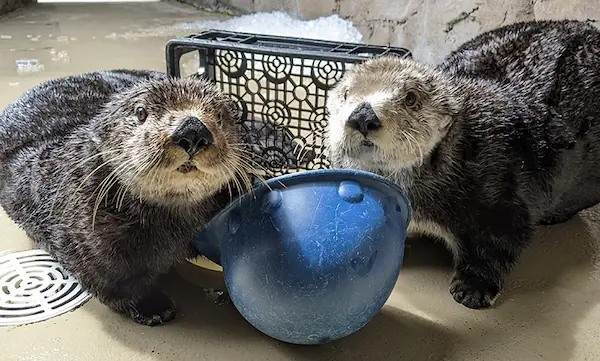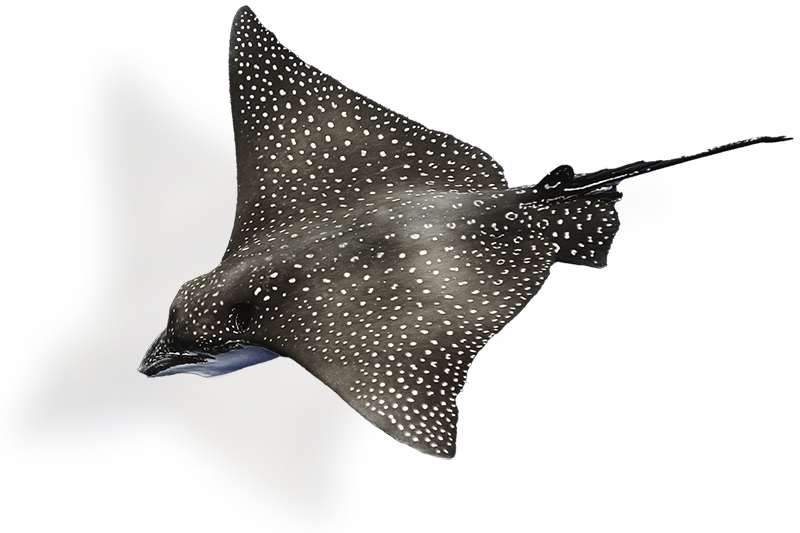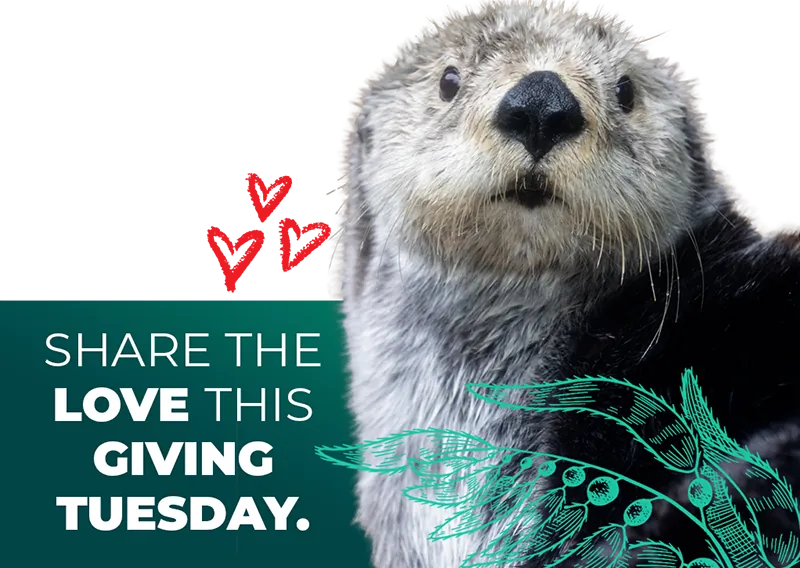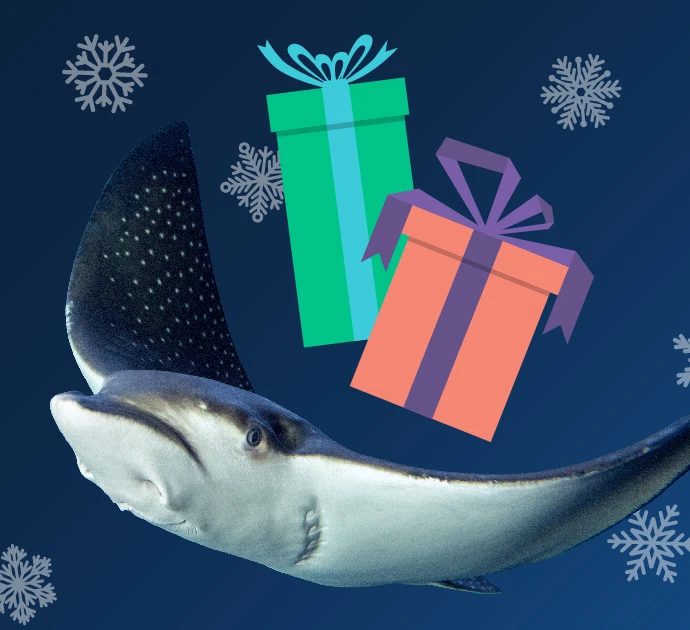The short 2024 Washington legislative session has ended. We could tell you about how the Seattle Aquarium worked with our partners on multiple bills to protect the ocean and advance environmental justice. But we’d rather bring you an extra special edition of the post-session report and go live with marine animals who share their “poli-SEA” updates.
What was your favorite bill from this legislative session?
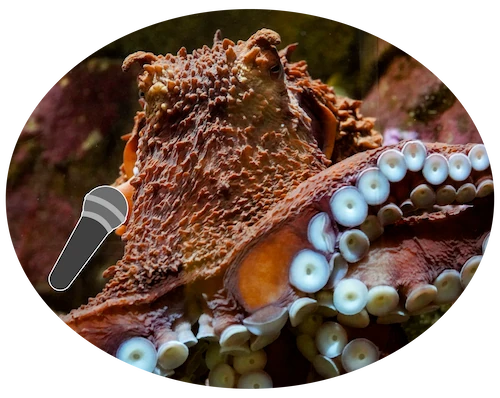
Giant Pacific octopus: Unlike me, this one’s a no-brainer. House Bill 1153, which prohibits commercial octopus farming in Washington waters, passed. And I’m as happy as a clam, as humans say. Like other octopuses (and apparently human teenagers), I like my alone time and need things to keep my brain active, so being in a crowded aquaculture operation would be hard on me. There are no octopus farms in Washington waters currently, and the state legislature took proactive measures to help keep me and my fellow octopuses safe in the future.
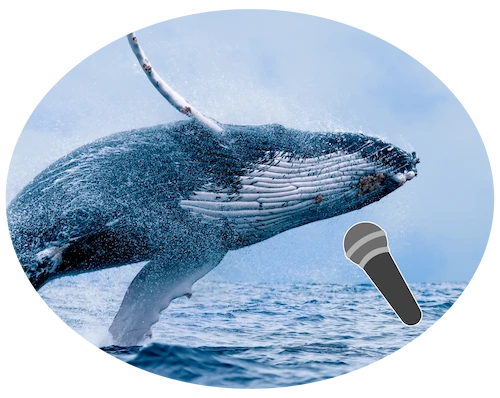
Humpback whale: Did you know that scientists have discovered that saving whales like me could help sequester more carbon dioxide? Whales, especially large whales like me, help with the natural carbon cycle. Our high-nutrient feces help algae and other primary producers. And when we die and sink to the bottom, we take stored carbon with us. Yep, that’s right. We whales have been helping to cycle carbon for…well…a long time. That’s why I’m a fan of House Bill 1368, which transitions Washington’s school bus fleet from diesel to zero emissions. The state’s school buses currently generate about 150,000 metric tons of climate pollution. That’s as much weight as me plus 4,200 of my humpback buddies! Reducing emissions from school buses will help kids be more focused and breathe cleaner air.
Can you tell us about any other bills that will help clean up the environment?

Giant Pacific octopus: While I am happy in dark spaces, apparently you humans need to use something called light bulbs for your homes. (Are you afraid of the dark?! Maybe you just need more arms to help you feel your way around…) But the fluorescent thingamabobs you humans use contain mercury, which is incredibly toxic. I’m thrilled that House Bill 1185 was passed to deal with that problem. Since 2009, Washington has had a product stewardship program for the safe disposal of mercury-containing light bulbs called LightRecycle. This bill extends LightRecycle and bans light bulbs that have mercury. It will protect Washingtonians, the environment, and me and my fellow ocean-dwellers.
Any disappointing results from the legislative session?
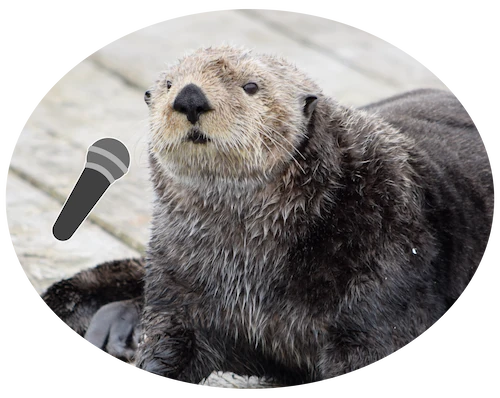
Sea otter: You might know that we sea otters spend a lot of time cleaning our fur so it keeps us warm, and pollutants like oil make that harder for us. But did you know other pollutants can hurt us internally? PFAS are very long-lasting chemicals that could make me or my pups sick. And they have been linked to harmful health impacts on humans as well. Not to mention they can be toxic to my prey, making it dangerous to feed my family our favorite invertebrates, like mussels and crabs. Senate Bill 6163, addressing PFAS in biosolids, would have helped prevent these toxins from contaminating the waters we call home. If it had passed, it would have established a system to monitor the presence of PFAS in municipal sewage waste produced at wastewater treatment facilities. These biosolids are often spread on farms or in forests, and the runoff can contaminate the environment, including the streams where salmon swim and ocean waters where I hunt and forage. Making sure biosolids have lower levels of toxic chemicals is very important. This bill “otter” pass next year!
Would you like to highlight anything else the Seattle Aquarium is still working on?
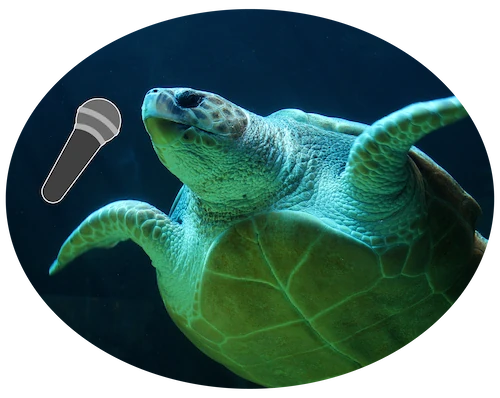
Sea turtle: When I’m hungry, sometimes it’s hard to tell the difference between my food and plastic litter! Plastic bags look a lot like jellyfish. Then there’s all the plastic on the beaches where I lay my eggs. Yuck! So, I’m pleased that the Seattle Aquarium and its partners in the Plastic Free Washington Coalition are going to keep working to pass the ReWRAP Act (House Bill 2049). While the bill ran out of time in this short session, my friends on the Aquarium policy team and their partners are in a “turtle-y” great place for the next session. Together, they’ll make sure Washington can upgrade recycling services through a producer responsibility program for packaging. They’re working toward reducing waste and my—and my fellow sea turtles’—chances of eating plastic. This bill will also address climate change by incentivizing companies to switch to more sustainable packaging alternatives, including reusable options. That’ll help reduce plastic production in the first place. Plastic is made from fossil fuels, and the production process results in a lot of nasty pollutants that no one—human or turtle—wants. I’m confident the ReWRAP Act will pass next year and look forward to shell-ebrating!
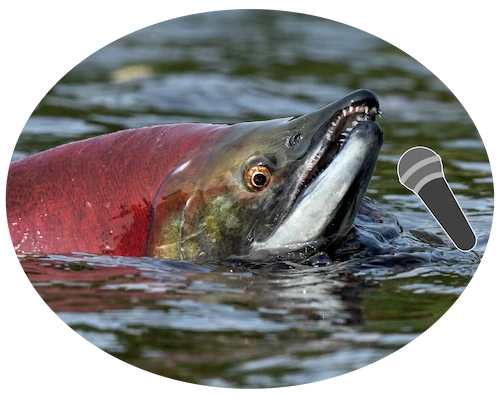
Salmon: The Seattle Aquarium also supported efforts to pass a bill that would allow local elections to take place in even-numbered years (House Bill 1932). Like our salmon journey upstream, where we face great obstacles, there are often barriers for voters too. Voter turnout has been proven to be higher in even years, when national elections take place. Allowing local elections in those years would help ensure they reflect the diversity of the broader population. Plus, national and local elections are both important to elect people who will help pass laws that will better protect the marine environment. I vote for HB 1932 to be put on the legislature’s priority list for next year!
Any last words or requests for your fans here on land?

Salmon: People who care about climate change, pollution and the recovery of animals like me should make sure they are registered to vote before the next election! I encourage everyone to swim on over to votefortheocean.org to check your status, register if needed and find other helpful resources.

Humpback whale: If you’d like to find other ways to support the Seattle Aquarium’s policy work and be an advocate for ocean animals like us, head over to the Act for the Ocean page!
